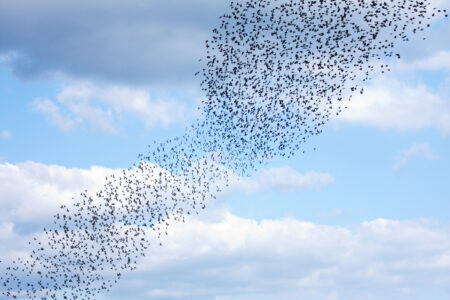Why multiculturalism may be good for your health
In both politics and society, multiculturalism seems to be becoming less and less popular. However, research from our lab shows that a multicultural orientation reduces the stress of inter-group encounters, also for members of ethnic-majority groups.
Not so long ago, Dutch prime minister Mark Rutte voiced his aversion to multiculturalism: "Multicultural society; I hate that term!". He is not the only one. Across Europe and other parts of the world, politicians and substantial parts of societies seem to have abandoned the idea of multiculturalism, in favor of an ideology of assimilation.
Acculturation ideologies
These societal trends fit with psychological research that shows striking differences between minority and majority groups in their support for acculturation ideologies. Members of ethnic majority groups are typically more in favor of a “one-group” identity, defined by the norms, values, and other characteristics of the majority group, to which members of the minority group should assimilate ('American = White'). By contrast, members of ethnic minority groups are typically more in favor of multicultural orientation, meaning that differences between groups should be stressed or even celebrated. This closely relates to a 'dual identity' comprising simultaneous identification with an ethnic subgroup and an overarching national identity ("I feel Dutch, but also Moroccan").
Intergroup interactions
But how do these different acculturation ideologies play out during actual inter-group interactions? In one of our experiments, native-Dutch participants worked on a cooperative task with a Moroccan-Dutch person. This Moroccan-Dutch individual expressed her support for either a one-group identity or a dual identity. Before the interaction, the native-Dutch participants were encouraged to actively think about the advantages of either a dual identity or a one-group identity.
Positive and negative stress
During the subsequent interaction we measured the participant’s cardiovascular responses (e.g., blood pressure, electrocardiography). In our lab we apply a methodology that makes it possible to discern positive stress ('challenge') from negative stress ('threat'). While challenge typically leads to higher performance, the cardiovascular response to threat leads, in the long run, to bad health outcomes.
We found the strongest threat response in native-Dutch participants when they had focused on the advantages of a one-group ideology but were then confronted with a Moroccan-Dutch individual who expressed her preference for a dual identity. Importantly, however, this threat of multiculturalism was viewed more as a positive challenge when the native-Dutch participant had focused on the advantages of a dual identity. In other words, most positive stress during the inter-group interactions was found in the situation where both persons had studied the advantages of a dual identity. Importantly, in the situation where both individuals had focused on the advantages of a one-group identity we found the typical inter-group threat response.
The challenge of multiculturalism
Our research suggests that a multicultural approach, and its associated dual identity representation, provides the most fruitful route towards positive inter-group interactions. We hypothesize that a dual identity has this positive effect because it creates common ground between members of different ethnic groups, while at the same time leaving room to express one’s own ethnic identity. The latter is particularly important for members of ethnic-minority groups. It works better to provide them with an additional layer of identity (e.g., 'Dutch') than to force them to give up another central part of their identity (e.g., Moroccan). For ethnic-majority group members, a dual identity is functional for coping with the stress of navigating through a world where inter-group interactions are increasingly becoming a central feature of day-to-day life.
A Dutch version of this blog appeared in NRC.





